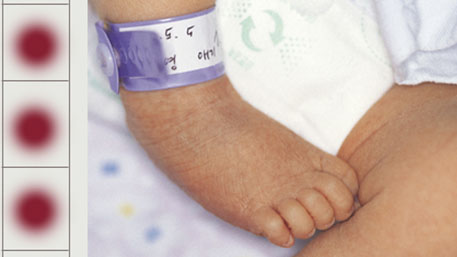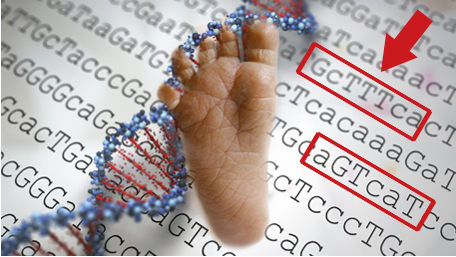Search Results
10 results for newborn screening
From Guthrie to Genomes: The Continued Evolution of Newborn Screening

Two recent articles by Bick et al. and Watson et al. discussed the future of newborn screening and identified considerations and needs for the evolution of the newborn screening system as it tries to meet the growing demands to screen for more rare diseases and incorporate genomic technologies. As newborn screening (NBS) moves past 60
Posted on by 1 CommentCan’t Stop, Won’t Stop: The Resiliency of Newborn Screening Programs during the COVID-19 Pandemic

A recent article identified the impact of the COVID-19 pandemic on the newborn screening system and highlighted the importance of collaboration and technical assistance to ensure ongoing operations of this essential public health service. The ongoing COVID-19 pandemic stressed, disrupted, and fundamentally changed the public health system in the United States. While much of the
Posted on byFrom Guthrie to Genomes: Expanding Bioinformatic Capabilities in Newborn Screening Programs

Through a funding opportunity from CDC’s Office of Genomics and Precision Public Health in collaboration with the Office of Advanced Molecular Detection, CDC’s Newborn Screening and Molecular Biology Branch will conduct a two-year project to develop a streamlined national newborn screening (NBS) bioinformatics pipeline to help in expanding the use and utility of gene and
Posted on byA Strong Start: Enhancing Newborn Screening for Precision Public Health

As the capability to sequence an individual’s genome or exome continues to expand—and the cost continues to fall—more states are considering how next generation sequencing (NGS) could support their newborn screening programs, which test approximately four million babies born in the United States each year for congenital, treatable diseases. Results from NGS can help enhance
Posted on byPublic Health Perspectives on Ensuring Life Long Benefits of Newborn Screening

This blog post is a summary of a Perspective recently published in Pediatrics that was authored by Alex Kemper of Nationwide Children’s Hospital, Jeffrey Brosco of the Miller School of Medicine, University of Miami, and Coleen Boyle and Scott Grosse of CDC’s National Center on Birth Defects and Developmental Disabilities. Newborn screening is a highly
Posted on byNewborn screening for severe combined immune deficiency (SCID) saves lives and money: a cost-effective public health policy

Severe combined immune deficiency (SCID), also known as “bubble boy disease,” is a rare inherited disorder of the immune system that leads to recurrent severe infections. In the absence of effective treatment, SCID is usually fatal within the first 2 years of life. Treatment by hematopoietic cell transplantation can minimize the devastating effects of SCID,
Posted on byNewborn screening in the genomics era: are we ready for genome sequencing?

Recent advances in next generation sequencing (NGS) could potentially revolutionize newborn screening, the largest public health genetics program in the United States and around the world. Over the last five decades, newborn screening has grown from screening for one condition (phenylketonuria (PKU)) in one state, to nationwide screening for at least 31 severe but treatable
Posted on by 2 CommentsNew Strategies For Public Health Genomics Beyond Newborn Screening

A Working Meeting and an Action Plan to Save Lives Now Nearly 2 million Americans are affected by one of three genetic conditions with a strong risk of early morbidity and mortality: BRCA 1/2 and hereditary breast and ovarian cancer; Lynch syndrome and colorectal , endometrial and ovarian cancer; and familial hypercholesterolemia and early cardiovascular events. At
Posted on by 2 CommentsPopulation Screening for Rare Pathogenic Variants as the Low Hanging Fruit for Public Health Genomics Across the Lifespan

Rapid advances in human genome sequencing technologies have accelerated the integration of genomics into clinical practice. Genomics has demonstrated clinical utility as a diagnostic tool for certain diseases, but its potential for population screening is still work in progress. In principle, DNA-based population screening can identify persons with rare pathogenic variants who are at high
Posted on by 1 CommentPopulation Genomic Screening is Here: We Need Evidence on Health Impact and Optimal Implementation

A recent study identified 12 population-based genomic screening programs in the United States and described their implementation logistics and potential health impact. In the past decade, the promise of genomic screening in the general population has garnered increasing interest due to a combination of factors such as enhanced sequencing capabilities, lowered costs of testing, and
Posted on by 2 Comments

